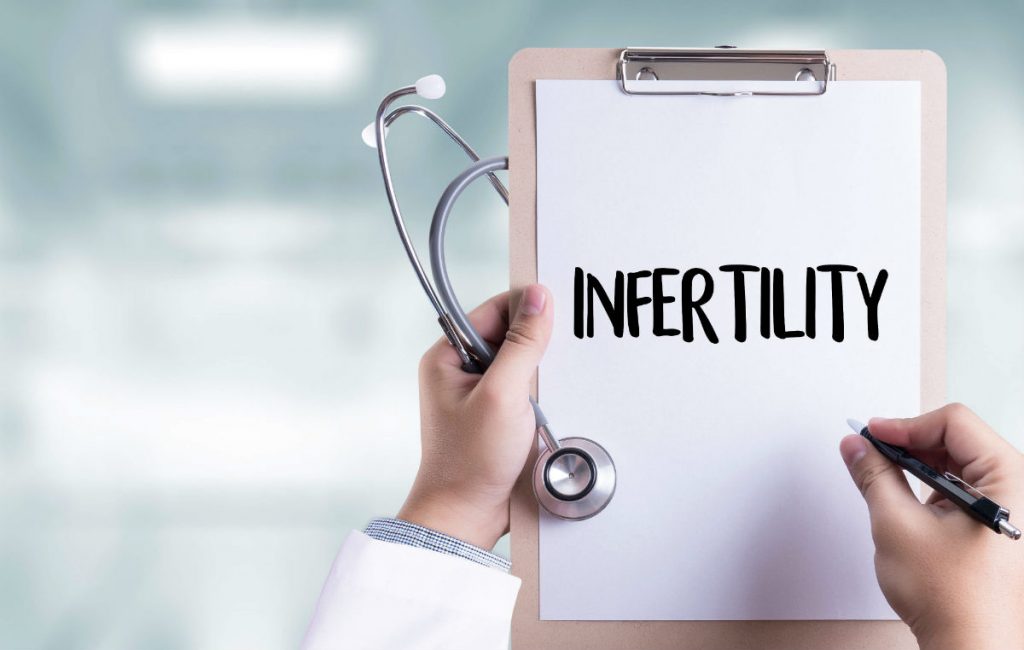HOW POLYCYSTIC OVARIAN SYNDROME IS CAUSING INFERTILITY IN WOMEN – Expert
Polycystic ovarian syndrome (PCOS) is a hormonal disorder common among women of reproductive age. The polycystic ovarian syndrome is multiple fluid-filled sacs in the ovaries, appearing like beads. Women with polycystic ovarian syndrome have irregular menstruation, chronic lack of ovulation, excess ‘male hormone’ levels called androgens. PCOS is also a common and treatable cause of infertility. PCOS affects five to 10 per cent of females in the reproductive age group, and the age of onset is often 16 years.
WHAT ARE THE CAUSES OF PCOS?
Although the exact cause of PCOS is unknown, some research shows that it is gene-related. The gene-related insulin resistance leads to excess production of insulin, which stimulates the excess production of ovarian androgens. Some studies have found that PCOS is genetically inherited. The fathers of women with PCOS can be excessively abnormally hairy, female siblings and mothers may have an excessive and masculine pattern of hair growth and irregular menstruation.
There are related factors such as insulin resistance, increased androgen levels, and irregular menstrual cycles.
SIGNS AND SYMPTOMS
Irregular menstrual periods: women with PCOS may have infrequent periods or have fewer periods (fewer than eight in a year) or periods that occur too frequently i.e., every 21 days or less, or stop having menstrual periods.
Anovulation: lack of the release of eggs from the ovary, which leads to infertility.
Hirsutism: excessive hair growth on the face, chest, abdomen, and upper thighs.
Obesity, acne on the face, chest, and upper back; darkening of the skin, oily skin, as well as multiple small fluid-filled sacs in the ovaries
HOW DOES PCOS AFFECT FERTILITY?
PCOS is one of the most common causes of infertility in women. Irregular menstrual periods are directly related to the chronic lack of ovulation seen in PCOS and resultant infertility.
The eggs may not develop in the ovaries or may not be released from the ovaries. Without ovulation, conception cannot occur.
DIAGNOSIS
After reviewing your medical history, physical examination, and some laboratory investigations, a doctor makes a PCOS diagnosis.
TREATMENT
There are three approaches to the treatment of PCOS. Treatment is always individualised, i.e., tailored to each woman according to symptoms, other health problems, and desired pregnancy. The approaches are lifestyle modification, medications and surgery.
Lifestyle modification: This involves diet change and exercise. These modifications encourage weight loss and have effectively restoring ovulation and achieving pregnancy, especially in obese women with PCOS.
Diet change: women with PCOS are advised to eat foods that are high in fiber (potatoes, avocados), high in omega 3 fatty acids (fish), high in protein (nuts, beans, lentils). Refined carbohydrates such as sodas and sweets should be avoided. Iron-rich foods such as eggs and broccoli should be taken, magnesium-rich foods such as bananas and almonds and cashews should be encouraged. Caffeinated drinks such as coffee should be avoided as this can cause changes in hormone levels.
Exercise: moderate-intensity exercises such as cycling, brisk walking, swimming, and light aerobics are encouraged. This type of activity increases the body’s sensitivity to insulin, aids weight loss, and reduces the risk of cardiovascular disease and type 2 diabetes mellitus.
Medications: medications are usually reserved for high glucose levels, hirsutism, and irregular menstrual periods.
SURGERY
Surgical management is aimed mainly at restoring ovulation.
Treatment at Mart-life Detox Clinic.
At Mart-life Detox Clinic, Maryland, medicine approach to the management of PCOS involves dietary changes, appropriate use of supplements, and complementary medical therapies. The treatment aims to rid the body of environmental toxins, which have been identified as significant contributors to infertility. Some of these toxins, collectively known as endocrine distributors, cause infertility in the woman and constitute fertility problems for unborn children and even grandchildren. During a customised Mayr program, patients are encouraged to do the following:
Regular exercise which includes brisk walking is encouraged. A daily 30 minutes regimen is motivated at least five times a week.
Dietary changes incorporate high fiber foods, complex carbohydrates, and foods rich in omega-three fatty acid and iron. Portion control is also encouraged to aid weight loss.
Drink plenty of fluids-drinking at least three litres of water daily is encouraged
Avoid cigarette smoking-women with PCOS are at risk of other health problems; hence smoking should be avoided.
Good sleep hygiene is encouraged, at least six to eight hours of sleep per night.
Bioenergetic stimulation: this uses a mechanism similar to acupuncture. It helps increase blood flow to the ovaries, reduces stress hormone levels, and increases the body’s sensitivity to insulin.
Oxygen therapy-oxygen is delivered at varying concentrations. It helps the regeneration of the cells in the ovaries.
Have you been experiencing some of the symptoms described above or have a family history of PCOS? Speak to your doctor immediately. PCOS is easily diagnosed, and it should not hinder you from having children.
Early diagnosis is essential; find out today and start your treatment course.
@ Professor Oladapo Ashiru
@ Punch Newspaper

